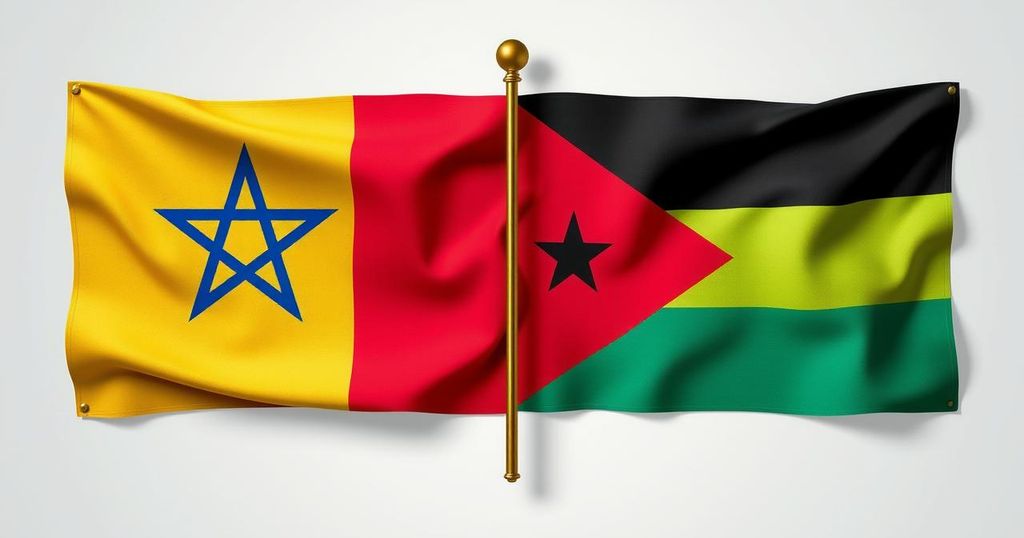Ethiopia and Somalia Resolve Diplomatic Dispute Amid Tensions

Somalia’s Foreign Minister Ahmed Moalim Fiqi announced that a diplomatic dispute with Ethiopia has been resolved, reportedly without concessions from Somalia. Ethiopia has pledged to strengthen bilateral ties following a high-level delegation’s visit. Their tensions arose over Ethiopia’s maritime deal with Somaliland, which Somalia views as an affront to its sovereignty. Both nations are set to engage in further technical discussions, aiming for commercial agreements and future cooperation.
The longstanding diplomatic rift between Ethiopia and Somalia, which has contributed to regional tension, has reportedly been resolved according to Somalia’s Foreign Minister, Ahmed Moalim Fiqi. His recent statement, broadcast on state-owned television, indicated that Somalia did not concede on any issues. Meanwhile, Ethiopia has not publicly addressed Somalia’s claims but mentioned a commitment to enhance bilateral relations. This diplomatic impasse stemmed from Ethiopia’s maritime agreement with Somaliland, a self-declared, yet unrecognized independent territory by Somalia, which heightened disputes between the neighboring countries.
The resolution follows an Ethiopian delegation’s visit to Somalia, led by Defence Minister Aisha Mohammed, signifying a thaw in relations after a Turkey-mediated agreement was reached last month. Central to discussions was the future of the African Union’s peacekeeping forces in Somalia, with Ethiopia having a substantial troop presence not under AU mandates. Ethiopia has expressed intentions to collaborate within the framework of the peacekeeping mission, amidst fears from Somalia regarding its military’s role following earlier tensions over Ethiopia’s plans for a naval base in Somaliland.
Somalia has expressed strong opposition to Ethiopia’s dealings with Somaliland, which it views as territorial aggression since Somaliland has sought recognition since breaking away more than three decades ago. In light of these developments, the diplomatic atmosphere has shifted significantly, and the two nations are expected to convene again in February to engage in technical discussions. The parties aim to establish mutually beneficial agreements while acknowledging each other’s sovereignty, which may change the dynamics in the Horn of Africa significantly.
The Ethiopia-Somalia relationship has historically been fraught with complexity, particularly in light of territorial disputes and identity issues in the Horn of Africa. The latest tension escalated with Ethiopia’s maritime agreement with Somaliland, a region that seeks autonomy from Somalia. Ethiopia’s involvement with Somaliland was perceived as a direct challenge to Somalia’s sovereignty, igniting concerns about potential regional conflicts involving Ethiopia and Egypt supporting the Mogadishu government. Diplomatic efforts, particularly mediation by Turkey, have become crucial in facilitating dialogue and easing tensions, highlighting the geopolitical significance of the Horn of Africa region.
In conclusion, the resolution of tensions between Ethiopia and Somalia marks a significant diplomatic achievement bolstered by Turkey’s mediation efforts. Both nations are now engaging in dialogues focused on mutually recognizing each other’s sovereignty and potential commercial benefits. The renewed commitment to bilateral relations could lead to greater stability in the region and redefined interactions considering the historical disputes surrounding territorial claims and external influences.
Original Source: www.bbc.com







